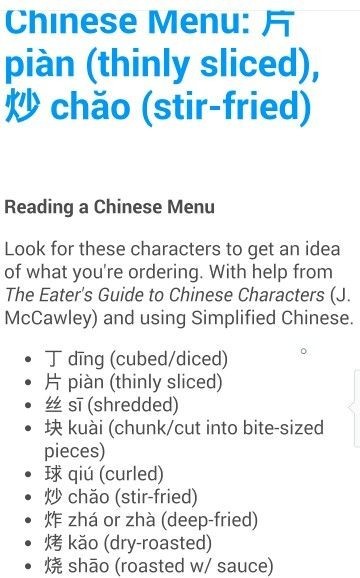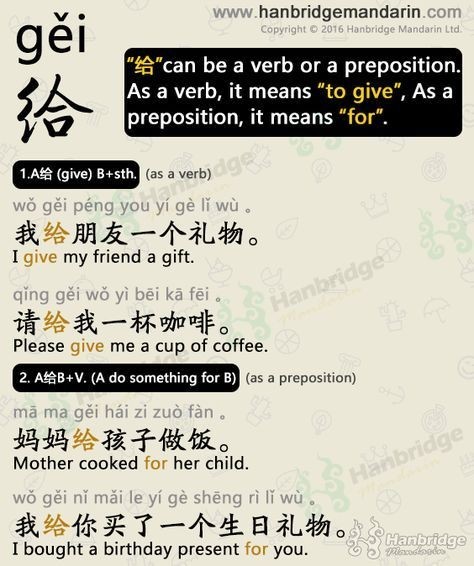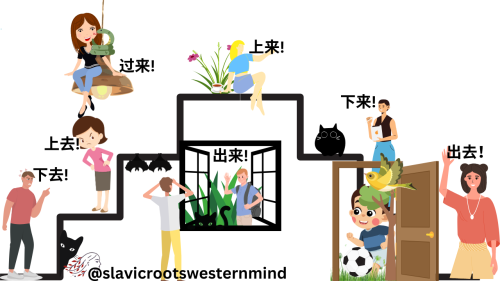Chinese Studyblr - Tumblr Posts - Page 2


Oh the many ways to say the most basic phrases in Mandarin Chinese.
(So sorry I haven't posted in a bit, exams are killing me slowly.)
Source: ♡ ♡

Ok, please don't tell me I'm the only one that finds the 2nd example funny; it's just so random and unnecessary. (This was quite useful though, nonetheless)



Mandarin Chinese restaurant vocabulary. I found much of the vocabulary these posts really useful for when I ordered food yesterday!
Sources of these pictures and other useful posts:
♤ ♡ ◇ ♧ ☆ ♤ ♡ ◇

Guys, I swear the source website of this picture had helped me out so much both when I started learning chinese and now!
Link:

I don't usually recommend pinterest to find useful websites but I did find this website there somehow lol. Istg half the links of pinterest are unavailable or something.
The directional "下/上/出/去/来" puzzle guide
I for one still confuse the usage of 出来 and 出去 and other similar structures so here's a guide to slightly depuzzle this puzzle.
上去 (Shàngqù): To go up and away from the speaker
下去 (Xiàqù): To go down and away from the speaker
出去 (Chūqù): To go out and away from the speaker
出来 (Chūlái): To go out and towards the speaker
上来 (Shànglái): To go up and towards the speaker
下来 (Xiàlái): To go down and towards the speaker
过来 (Guòlái): To ask someone to come over to the speaker
过去 (Guòqù): This one is tricky as it can have a few meanings so here are some random examples.
Movement away from the speaker e.g. 我来这家公司工作已经过去五年了= I have been working in this company for the past five years
Movement in time during the past e.g. 过去的年份里,公园里有很多树和花= In the past years, there were many trees and flowers in the park
Here's an illustration I made (it's been a while lol) to make it less (?) confusing:

Chinese Measurement Units Guide
At first glance the Chinese clothes sizes make little sense (they still make not that much sense even at the 15th glance as well to be honest). And the fruit and veggie prices are also no odder.
Then I realized that China has its own local measurement units, so here are some unique measurement units you should look out for plus an odd one out.
1. Weight
Kilograms are used (confirmed this during my medical exam, which is a story in itself), but for things like fruits, veggies etc. 公斤 is used, which is basically kilos divided by 2.
一斤 (yī jīn)= 500g
两斤 (liǎng jīn)= 1kg*
*Even though 斤 is translated to as pounds sometimes, it's actually kilos.
This is also used for clothing sizes (on taobao at least), so if you want to get an accurateish estimate you need to convert your weight to kilos, multiple by 2 and then select a size that fits within the range.
For example: if you weight 70 kg, you then multiple that by 2 = 140斤. Clothes will usually have size ranges e.g. 120-145斤, so that could fit into the L (Large) category.
Note: Sizes vary across stores, so an L in one shop can be an XL in another store or an 2XL in a different store so be ready to contact the seller asking for more specific measurements if not too sure.
2. Length
Usually kilometres and metres are used, but there's also a local system.
0.5 km - 1里 - lǐ
1 km - 2里 - lǐ
3. Area
Same as the previous one, the western measurement units are used but there's also a local system. Not very common from what I've heard, but still pretty handy and interesting to know.
1 km² -15顷 - qǐng
4. Volume
Volume is the same as the metric system, with it's own name so no surprises here.
1 L - 1 升 - shēng
The only major issue I've had has been with the weight measurement and its conversion, but other than that there aren't many issues.
5. Contact lenses
Maybe it's a location thing, but the eye diopter thing here is slightly different.
If your prescription is -4.00, then here it'll be just -400 or just 400 without the minus if buying on Taoboa. It should be obvious (farsightedness of +4.00?? with people studying and working that much??), but it threw me off the first time I had to get my contacts here.
They range from 0 to -8.00 but with one value for the entire package, so if you have significantly different diopters in each eye e.g. -2.00 in your right and -3.00 in your left, then you may have to buy 2 packets, 1 for each eye.
Class shenanigans #5
We went off topic as per usual and started talking about why we are studying Chinese and the replies varied; from marrying a 帅哥/美女 to randomly ending up with Chinese as a degree at uni by using an online choice generator (??)
Out of curiosity, I'd also be interested to know why everyone else studies Chinese!
My Christmas in China
Merry (late) Christmas! I didn't really celebrate Christmas this year, I actually almost forgot all about it until a few days ago😅
We had class as per usual on Christmas day, but during the last hour or so we watched the Karate Kid and ate biscuits and mini-fruit jelly things so it turned out quite nice. My friend also sent over a huge box of chocolates which arrived right after class, so I got a little Christmas miracle after all 💖
How are your holidays going?
Life in China #9 The microwave saga
Dorm life has had its ups and downs so far, but the absurd shenanigans that people get up to has been kind of worth it.
We aren't allowed to use and store our own electrical appliances like mini-rice cookers, or self-cooking stove things outside of the kitchen, so some people have been sneakily using them because you need to sign up for your own kitchen storage space and have all your items properly labeled.
However, someone got busted using a microwave in the men's bathroom last week. Points for creativity but the bathroom??
Apparently the dorm staff are cracking down on illegal cooking appliance use, and the microwaves are the first to go.
Pondering whether or not to re-take the HSK4 exam (without the speaking this time) since I failed to meet the passing mark by around 10 points last time and I refuse to believe that the past few months of studying wouldn't be able to give me that boost.
So we got our class schedules today and it turns out that I'm in the same class as I was last semester, probably because I requested to stay in the same level in the survey that was sent out without actually thinking everything through.
To be fair, this survey was before I got my exam results back and honestly I think did pretty well for someone who was initially placed 2 levels below because I didn't do too great on my placement test (although I evidently redeemed myself on my swap out test).
This upcoming week we're allowed to try out other levels before either staying or doing the swap test to go to a higher level, which I might do if the next level is manageable.
I feel like the main issue is that despite being really out of my depth in the beginning, this level ended up being challenging enough, but what if the next level is too difficult and this level is too easy? I don't want to waste this semester, but I also want to thrive rather than try to survive and constantly be stressed out about studying.
I guess the upcoming week shall reveal its secrets so there's not that much sense in obsessing over it. I for one will try to make the most of the remaining days before classes start.
Have a good weekend everyone!
What textbooks do you use for learning Chinese?
I noticed that my current textbooks at my exchange uni in China are noticeably different from the textbook used back at my home uni, and now I'm interested in knowing whether the content varies drastically overall.
I'm curious to see what are some of the other textbooks that used for learning Chinese and how effective you would consider them to be, so please feel free to share your thoughts!
The 然's
突然,虽然,忽然. and the other 然's can often get mixed up, so here's a quick explanation of some of the most common ones!
突然 (Túrán): This means suddenly or unexpectedly
居然 (Jūrán): This kind of means suddenly, but more in the sense of "surprisingly" or to suggest disbelief at something that happened.
忽然 (Hūrán): This also means suddenly or unexpectedly, but it has a more stronger connotation.
既然 (Jìrán): This is a conjunction meaning "since" or "now that"
既然the weather is great, let's go out!
既然 you aren't busy, let's go watch a movie.
不然 (Bùrán): This means "otherwise" or "or else";
You should study, 不然 you won't do well on the exam.
虽然 (Suīrán): This means although or even though.
虽然 I'm not good at singing, I still like to go to the karaoke.
当然 (Dāngrán): 当然 means certainly or definitely and can be used as a reply:
Can you help me with A? 当然!
自然 (Zìrán): This can mean nature or naturally.
China's 自然 is very beautiful.
She speaks Chinese 得很自然.
仍然 (Réngrán): This can mean "still" or "yet".
I仍然 haven't read that book.
依然 (Yīrán): Similar to 仍然, this also means still" or "yet" but it's usually used in more formal and literary works, whereas 仍然 is more often used in spoken language.
果然 (Guǒrán): 果然 can be used to mean "indeed" or "as expected"
This movie is 果然 interesting.
竟然 (Jìngrán): This is an adverb used to suggest surprise or something unexpected.
He竟然forgot her birthday.
显然 (Xiǎnrán): This means "clearly" or "obviously".
This soup 显然 hot.
偶然 (Ǒurán): This means "accidentally" or "by chance".
We 偶然 met at the same cafe.
How many other 然's do you know about? Drop a comment!
Yangs (扬) vs Changs (场) vs Tangs (汤)
These can get confusing, so here are some of the most common words that use this radical 昜 explained.
场 (chǎng)
A measure word for sports or leisure activities e.g. 一场足球比赛
A large place such as an open space, a field or a venue e.g. 会场 (a conference hall)
畅 (chàng)
An adjective meaning smooth or at ease or free from worry
A surname
玚 (cháng)
An old word (rarely used nowadays) meaning jade used in sacrificial ceremonies.
肠 (cháng)
Intestines or sausages
汤 (tāng)
Soup
Hot or boiling water
A surname
杨 (yáng)
A willow but it's more close to it's scientific name poplar in meaning
A surname
扬 (yáng)
To raise something e.g. 扬手
To toss or throw something up
A surname
炀 (yáng)
A literary term for smelting or melting something
旸 (yáng)
Sunshine or a rising sun
飏 (yáng)
To soar, fly or float
疡 (yáng)
A medical term for sores or an ulcer
钖 (yáng)
An ornament on a horse's head stall (oddly specific)
Update: I will be taking the HSK4 exam in September at my home university, as I can do HSK and HSKK separately or not do the HSKK at all, which is not an option at my exchange uni here.
Considering my past attempt, I think leaving the HSKK part alone for the foreseeable future is for the best, as my nervous system is unlikely to withstand another computer on-campus speaking exam.
Pondering whether or not to re-take the HSK4 exam (without the speaking this time) since I failed to meet the passing mark by around 10 points last time and I refuse to believe that the past few months of studying wouldn't be able to give me that boost.
The 青 characters
Here's another post explaining the difference between characters with similar radicals, so here's a quick guide to 青!
请 (qǐng) 1. To ask, request 2. To treat (someone to a meal etc.)
清 (qīng) 1. To clean,clear
青 (qīng) 1. Green/blue color 2. An abbreviation for young people 年青人
情 (qíng) 1. A feeling, emotion
晴 (qíng) 1. Fine, clear e.g. Clear weather
静 (jìng) 1. Quiet, peacegul
睛 (jīng) 1. Eye, eyeball
猜 (cāi) 1. To guess, suspect, speculate
精 (jīng) 1. Energy, spirit, essence
靖 (jìng) 1. This also means quiet, peaceful but it's a more older form. 2. A surname
腈 (jīng) 1. Nitrile, acrylic
The 佥 Characters
A quick guide to the different characters using 佥!
脸 (liǎn) 1. Face 2. The front part of something e.g. a shop 3. Self-respect
险 (xiǎn) 1. Insurance e.g. Health insurance, car insurance 2. A place difficult to access
验 (yàn) 1. To check, test or inspect something e.g. a blood test, to check a passport
剑 (jiàn) 1. A sword, dagger or sabre
检 (jiǎn) 1. To check, inspect or examine something
签 (qiān) 1. To sign something e.g. a contract, a document
捡 (jiǎn) 1. To gather or collect something
俭 (jiǎn) 1. This is an adjective meaning frugal
睑 (jiǎn) 1. An eyelid: Upper eyelid - 上睑 Lower eyelid - 下睑
佥 (qiān) 1. This character isn't really used that often, but in classical Chinese it's used to mean together